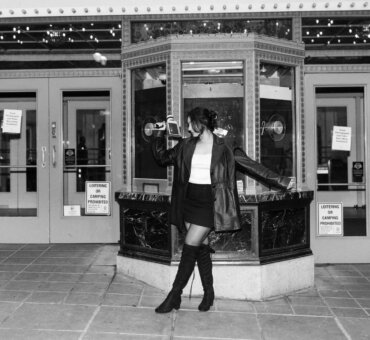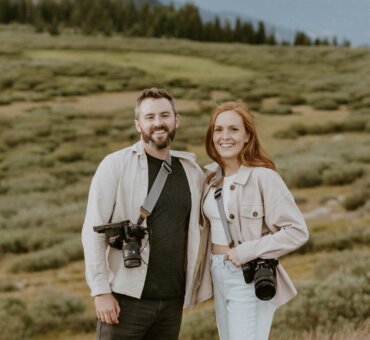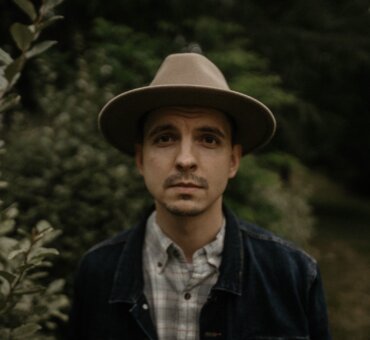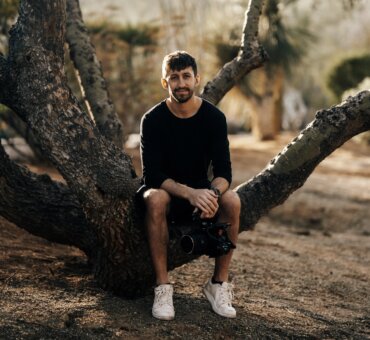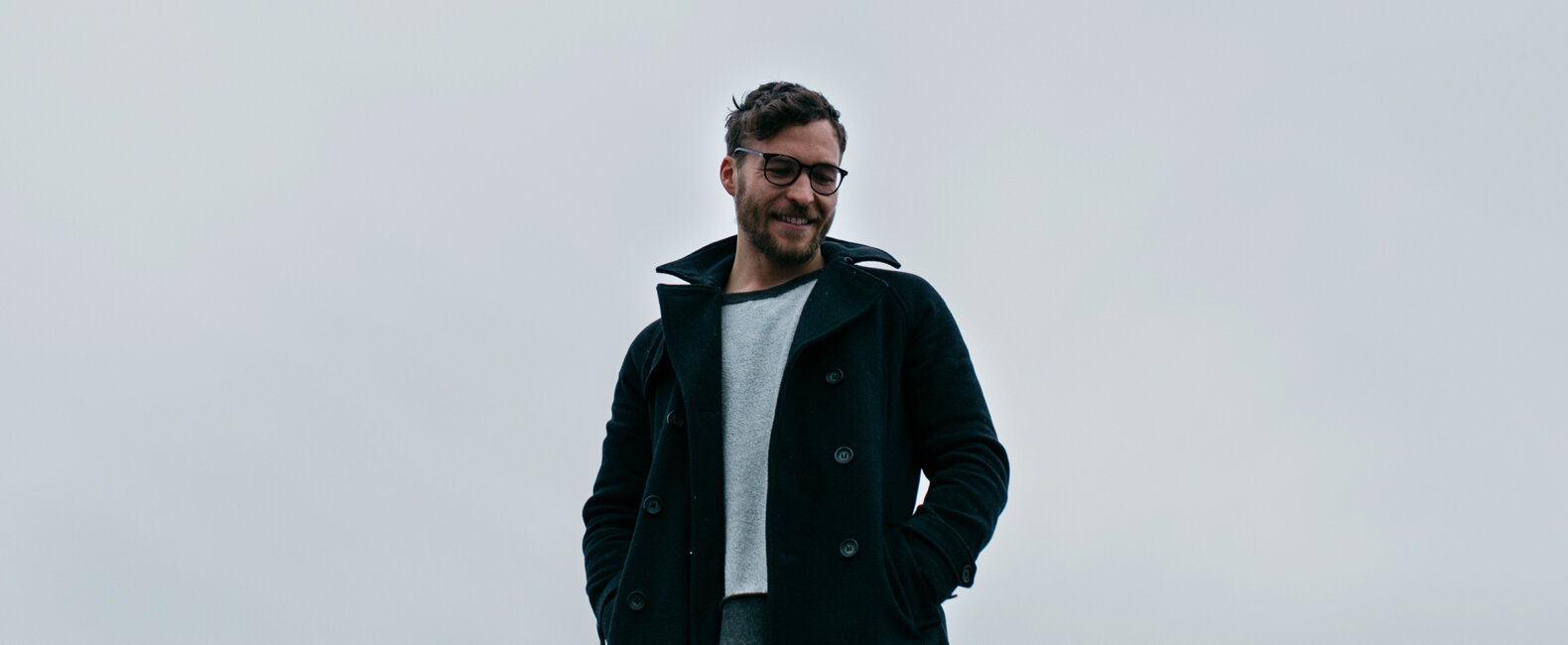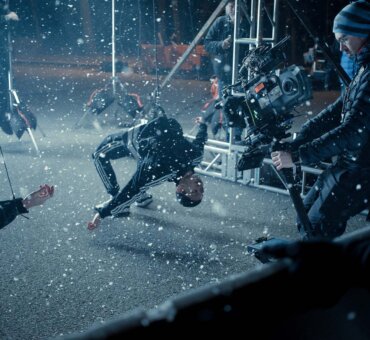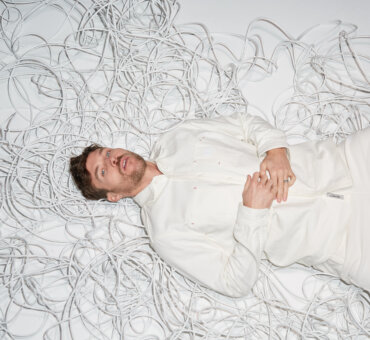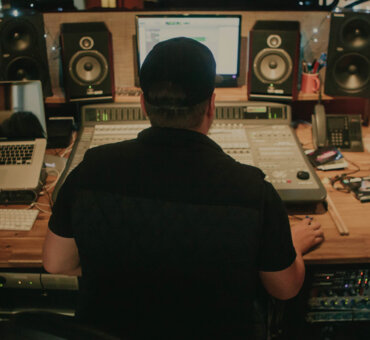Everybody wants to be Salomon Ligthelm — except Salomon Ligthelm. After years of being Vimeo’s darling and a poster child for crowdfunded passion projects, Salomon has left all of that behind in search of a more fundamental form of filmmaking. Filmmaking based on characters. Actors. Human experience. We talked to Salomon after he’d been living in New York for eight months. He was still very much transitioning from who he was to who he is becoming. It’s an uncomfortable place to be, as you’ll see from our conversation.
“I’d like to think all the pains are growing pains,” Salomon told us. “It’s just part of the process that you have to go through. I’m trying to do things I’ve never done before.”
We like to think of Salomon’s story as a koan for all filmmakers. A creative career isn’t a series of destinations. It’s a series of liminal states. Often filled with dissatisfaction, fear, and the feeling that you’re just faking your way through. We talked about all of that and more in this conversation with our good friend (and inspiration) Salomon Ligthelm.

Musicbed: When I first called, it said your voicemail hadn’t been set up.
Salomon Ligthelm: That’s probably because I haven’t set it up for my new U.S. number yet. I’ve been so busy transitioning; I’m only just now starting to find a groove.
You moved to New York recently.
Eight months ago. I wanted to start doing more commercial work, so I’ve been spending most of my time writing treatments and developing more of a commercial portfolio. Plus, we have another kid on the way, so it’s definitely a balance. It’s good though. Life’s best when it’s full.
Do you like working on commercial stuff?
To be honest, I haven’t had too much experience with it yet. I just started at Variable four months ago, and I’m still learning how things are done. It’s interesting. With commercial work, you’re drawn to it for the big clients and the big names, but there’s also a lot of politics involved. I feel like maybe I’ve done personal work too much. I’ve been privileged in that sense. But now I’m learning how to be humble and serve agencies and clients. I guess if I’m being honest, I don’t enjoy commercial work at the moment. But I think that’s because I’ve had this ego about doing what I want for so long. Now I’m learning how to serve other people’s ideas. Sometimes when the commercial stuff gets intense, I’ll think, Screw it. I’m just going to make music for a while.
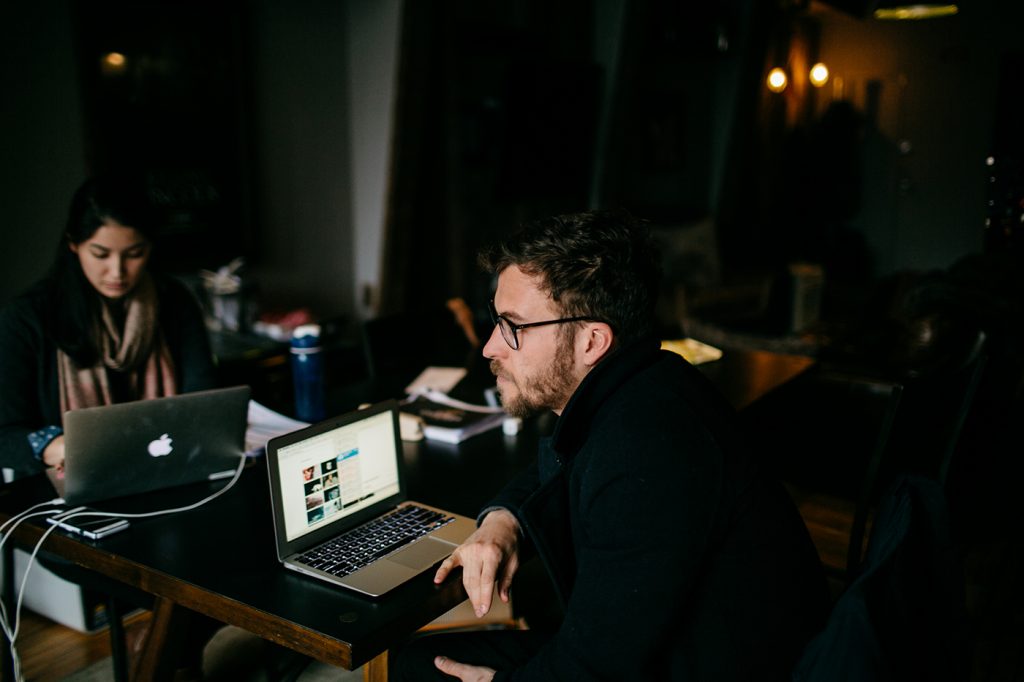
I’m learning how to serve other people’s ideas.
What’s the relationship between film and music for you?
I think this is part of how I’m growing and evolving. When I first started, everything I made had a musical anchor. Even with narratives, it was still anchored and held together with music. But what I’m trying to do at the moment is lose all of that. It’s an exercise in growth. Can I create something good that doesn’t just rely on my strengths? It’s important to do something you’re not comfortable with. To work outside of your arsenal or repertoire. That’s how you grow. That’s how you evolve. And that’s what I’m interested in at the moment — how can I explore filmmaking without relying on music or sound? Really taking it back to performance.
I want to learn how to communicate with an actor and get what I need out of him. I want to let the story be the crucial building block. There’s a film called The Tribe and it’s all in sign language. No subtitles. I really like that approach to things. I need to get outside of my comfort zone. I need to get uncomfortable. And to be honest, I am very uncomfortable at the moment.
So, because you’re good at music, you don’t want to use music?
Um, yeah. Exactly. People might see music as a hallmark of mine, but it’s become a default. I don’t want it to be a default. I want to explore new territory. Once I get the performance side down, then I can come back to sound. But I’ve been conditioned to think about music carrying a piece, and I need to unlearn that. It might take a while. Maybe in a few years I can come back to music and use it appropriately.
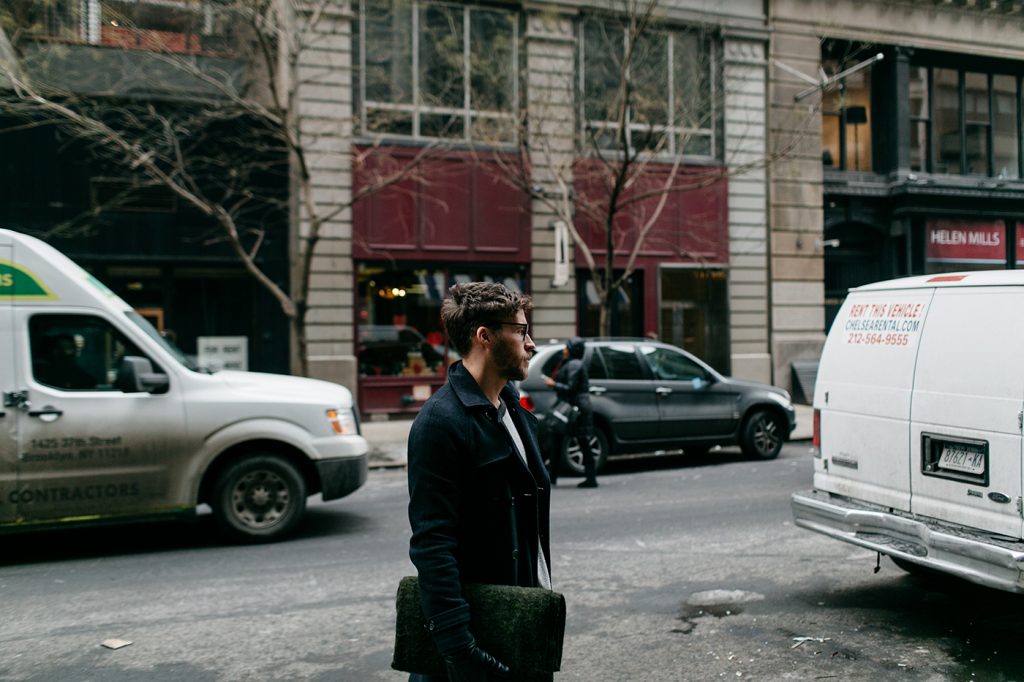
It’s important to do something you’re not comfortable with. To work outside of your arsenal or repertoire.
When you look back at your old work, do you think you used music inappropriately?
I guess I can say this: When I look at my old films — and I’ve put about 80 percent of them on private links now — I’m not very proud of that stuff anymore. Whether or not it’s because of the music, I’m not sure. I’ve just grown a little bit. I sometimes get jealous of people with theater backgrounds. It gives them a sort of minimalist maturity. My early stuff was me using everything I had, everything that was at my disposal. But now I’m into minimal stuff. Again though, it’s all about people’s journeys. Some people are going to write stuff that has crazy music and crazy sound, and that’s fine. I still use elements of that. But the stuff I really like is stuff with a light touch.
There’s this film called Of Gods and Men. It’s about this priest. There’s no music in the whole film until the very end, when the priest turns on a cassette player and this song just hits you. It’s the most beautiful piece of music you’ve ever heard. If you heard that song in the middle of the day, with all the noise and distraction we’ve gotten used to, it wouldn’t really stand out. But in the context of that film, it’s extremely powerful.
Do you feel like you’re growing a lot at the moment? Or has the transition to New York been kind of bewildering?
I’m going through growing pains. If I’m growing, it isn’t showing yet. It’s a lot of pain and frustration right now. I can look at it quite cynically and go, “It’s not worth it. What am I doing?” And maybe from the outside it seems like that. But I think it’s going to take a while. I’m learning a lot of things and meeting a ton of people. I’m really into documentary filmmaking at the moment, which is strange because that’s not at all what I’ve been doing. I’m trying to travel more, meet new people, tell stories that are real. And invariably that means having to get uncomfortable. It’s hard to say from the inside whether I’m growing or not. But I’d like to think all the pains are growing pains. It’s just part of the process that you have to go through. I’m trying to do things I’ve never done before.

I’d like to think all the pains are growing pains. It’s just part of the process that you have to go through.
Could you have stayed where you were and been happy?
No. Things were probably the best they could be when I left. I was doing my best work. But if you’re comfortable in a place for too long, you don’t grow. That’s basically the point I reached. I needed to go somewhere that would challenge me. And when I first moved to New York, it felt like a honeymoon. It was a new city, I didn’t really understand the industry, I had this naïveté. And in some ways naïveté is a good thing. But at the same time, you don’t understand the industry you’re in. Now I’m going through this more difficult season of understanding what the industry is like. I’m a nobody. Nobody knows who I am. I’m really having to come under authority and learn from everyone around me. I think if I’d stayed where I was, I would’ve kept making the same stuff. I would have grown, but the growth would have been slower.
A lot of creative people deal with imposter syndrome. They think they’re frauds. Do you ever feel that way?
All the time. Especially in newer environments. It can be very challenging. When you’re in the same place for a long time, you can start to feel like, Hey, I’m pretty good at this. But the reality is, I don’t know what I’m doing. I think that’s what New York did for me. It just completely heightened that. All of these people are so far along in their creative journeys. You can let that either intimidate you or motivate you. For me, it was a reality check. If I’m honest, I feel like every good project I’ve done was a complete fluke. If something was great, it was pure serendipity.
I was thinking about all of this in the elevator this morning. I was wondering if it’s worth it. Is it worth feeling uncomfortable, feeling pain, feeling absent and in my head, feeling slightly depressed? Is it worth it for my “art”? I don’t know if my wife can handle it. I just don’t know. It’s like the artist and the husband wrestle with each other all the time. I wonder if there’s a world where the two can coexist. I don’t know. I hope there is. That’s what I’m searching for.
Are most people’s ideas of Salomon Ligthelm outdated?
I talk to a friend of mine about this a lot. Every time I see those hallmarks of my work in my work, I can’t watch it. I don’t like it. The human experience appeals to me so much more than just a good piece of music with visuals over it. The thing about a lot of these Vimeo videos is they don’t require collaboration. But when you’re working with characters, when you’re working with actors, that requires collaboration. You have to rely on not just your own strengths, but on your ability to work with real people, which is what I want to be doing. I’m trying to foster a better understanding of where people are at. I’m trying to empathize with them. Those are lessons I’m learning as a human, and it’s changing the way I approach filmmaking. Or at least that’s where I’m aiming. Talk to me in another year.
Maybe growth in a creative life is inevitable. But like Salomon said, it’s the pace that you have some control over. You can stay comfortable. Or you can push yourself into dangerous places. The dangerous places are where you grow. No guarantees though. They’re dangerous for a reason.
Big thanks to Salomon for being so honest and vulnerable with us. Despite his internal urge to shy away from music, you should really listen to his stuff. Salomon is an incredible composer with Musicbed and we’ve loved gettting to be a part of his journey. We can’t wait to see where he ends up.




































































